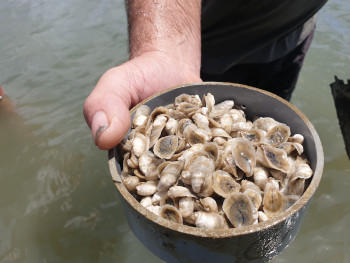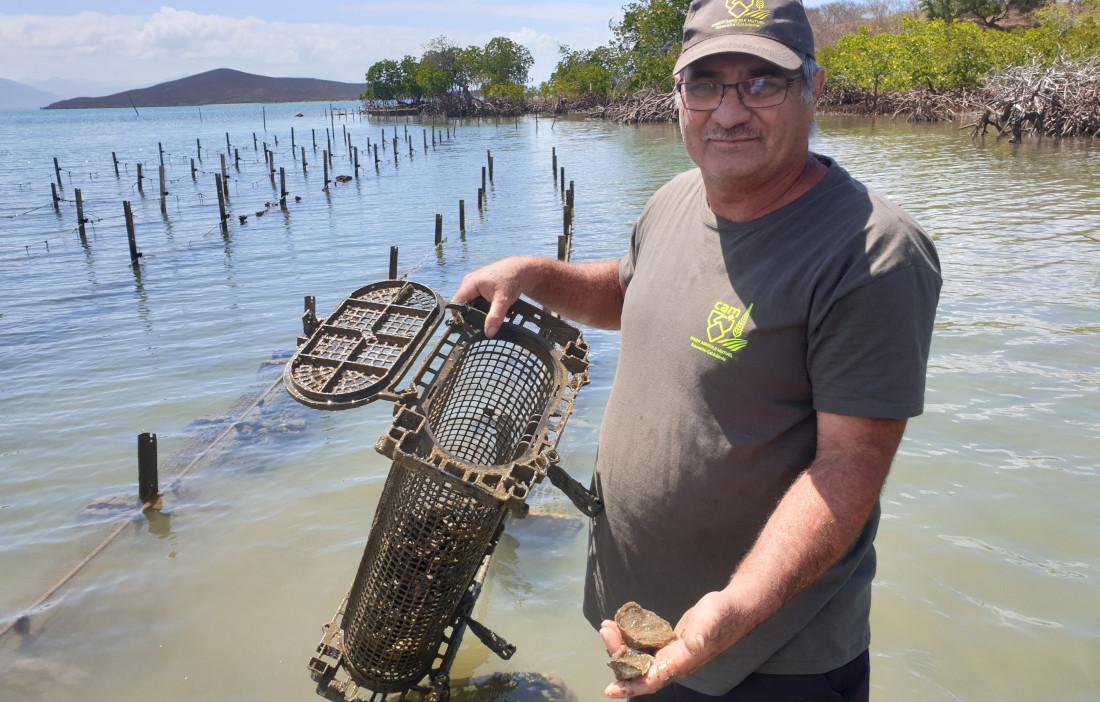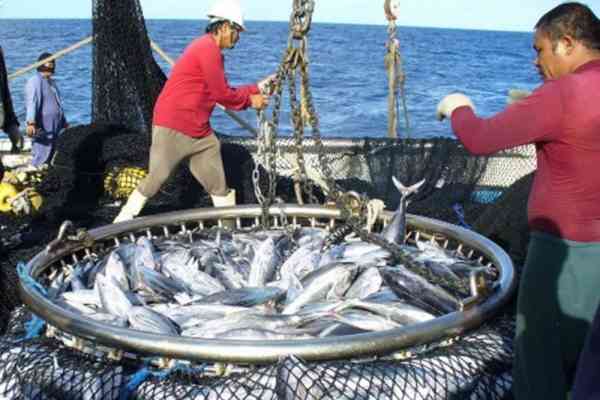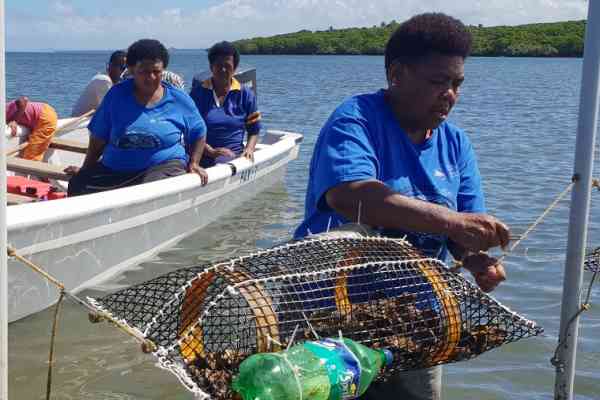This is the story of a man who has been a fisher in New Caledonia since the age of 20. Patrick Morlet, 56 years old and the third generation of fishermen in his family, has decided to diversify his income source by investing in oyster farming.
"I'm starting to get old and fishing is still a very physical job," he explains. "The goal of farming oysters is to stop fishing and make it my main source of income."
Patrick and his wife live in a village in Boulouparis, an hour's drive from Nouméa. Their farm is at the end of a cul-de-sac in a dry and arid landscape typical of this part of the island. In 2008, this father of two, realising that the local demand for oyster consumption was huge, decided to start a small oyster farm.
"Oysters are very popular with New Caledonians. They are really part of our life, especially when we want to mark a particular event," he says with a smile. "The demand is such that we can easily sell 1500 dozen just for the end of the year holidays," he adds.

Indeed, the two “big moments” of the year for oysters’ sale are Mother's Day and Christmas. New Caledonians are seafood aficionados and oysters make their celebrations particularly festive. Oyster farming is an ancient form of aquaculture and, despite recent technological advances, it remains relatively low-tech and low-cost.
In 2018, the Pacific Community (SPC) launched a regional call for proposals to enterprises, businesses, farmers, growers, processors, exporters, associations and NGOs to apply for assistance in business mentoring and training, including feed and brood stock management, to strengthen their aquaculture fishery.
Andrew Smith, Deputy Director of SPC’s Coastal Fisheries Programme, said, “The growing population pressure in Pacific Island countries is forcing us to rethink the use of the coastal fisheries space and how the productivity of the system can be increased. Oyster farming is one of the most sustainable forms of aquaculture with low environmental impact, high sustainability and high net benefit to society,” he added.
After extensive consultation with member countries and key partners to identify priorities in 2017, SPC and its partners adopted a small-to-medium enterprise assistance approach for the development of aquaculture to address livelihood and food security needs and the need for environmentally sustainable aquaculture. The region’s capacity in aquatic biosecurity will also be strengthened.
Patrick Morlet has received technical assistance from SPC experts regarding broodstock selection, broodstock spawning and larvae rearing at the ADECAL (New Caledonian agency for economic development) marine hatchery in Kone in order to substitute the collection of spats from the wild to hatchery-produced spats. He also went on a study tour to visit oyster farms in Australia from 23–28 July 2018. The tour was organised by SPC’s Aquaculture Section and New South Wales Fisheries.
"I am one few people in New Caledonia who raises the oyster rock, which is very robust and can stay out of the water for a week," Patrick proudly says. "I go to sell them myself at the market and it's a real pleasure for buyers to see that they are dealing directly with the producer," he adds.
Thanks to the New Zealand Aid Programme, SPC has assisted this farmer with a small grant, which will make a huge difference in his business. He is receiving 500 oyster baskets for grow-out in the sea and a set of video cameras to assure farm security.
"These baskets will be game-changing for my business because I will probably double my production," says Patrick.
In Fiji, SPC is working to promote small-scale, entry-level marine aquaculture businesses with oyster farming trials to expand by 2020, and hatchery and spat collection trials will continue in New Caledonia until mid-2021, with support from the New Zealand Aid Programme.
"As part of the business approach underpinning this project and in order to be sustainable, SPC is asking beneficiaries, such as Patrick, for a 40% share of any purchase of farming equipment,” said Ruth Gomez Garcia, SPC Technical Expert. "In each case, the SPC's Grants Committee requires that the enterprise has been in existence for at least one year has at least one year existence to be eligible," she adds.
Patrick wants his family to get involved in this business. "My son is finishing his MBA studies and will join me later to develop this activity. My wife is helping me a lot at weekends, even though she has another job, so it's really a family story!”
The importance of fish for nutrition, food security and livelihoods among Pacific communities has been thoroughly highlighted in this region through reviews and regional fora. Coastal fisheries are the main source of seafood for Pacific communities but they are under threat from overfishing, habitat degradation, high population growth, natural disasters and climate change. These are some of reasons why, since 2017, the SPC Aquaculture project Sustainable Pacific aquaculture development for food security and economic growth, supported by the New Zealand Aid Programme, has assisted ten aquaculture enterprises and eight cluster groups of farmers in ten Pacific countries and territories. The small-scale aquaculture response to food security will be crucial for the coming decade.
By Toky Rasoloarimanana


